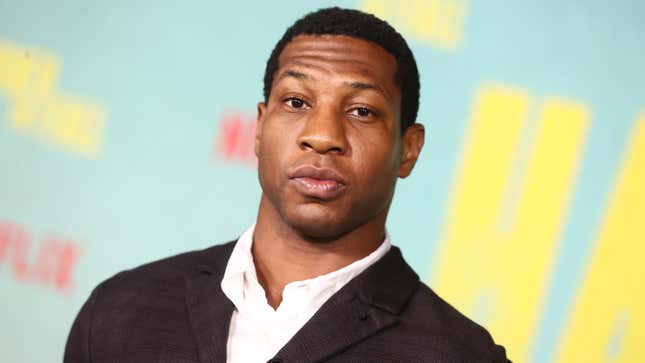
The trial of Jonathan Majors commenced on Wednesday in New York City as the judge made a ruling about sealing certain evidence, reportedly concerning “potential past incidents” of a similar nature to the current trial (per Deadline). Majors faces four charges of assault and aggravated harassment against his ex-girlfriend Grace Jabbari regarding an altercation that occurred earlier this year. (A fifth charge of strangulation has been dropped.)
- Off
- English
Majors was present in court on Wednesday for a hearing on several motions, with jury selection expected to take place later in the afternoon. One of the motions from the defense requested that certain “contested evidence” remain under seal due to the high profile nature of Majors and the trial. “We believe that the disclosure on this one limited issue would taint the jury pool beyond repair,” one of Majors’ lawyers, Seth Zuckerman, argued to the judge (via Deadline). Katherine Bolger, a lawyer for a group of media organizations fighting for the records to be unsealed, argued that “There is already pre-trial publicity,” seemingly referencing previous reports that “multiple alleged abuse victims of Majors” were cooperating with the Manhattan District Attorney’s Office.
Ultimately, Judge Michael Gaffey ruled in favor of Majors’ team, noting that the sealed information is “likely to be prejudicial and inflammatory.” He agreed that any publicity surrounding the sealed information would “threaten” the jury selection process. (Per Variety, the information might still become public if the evidence is found to be admissible for trial.)
According to Deadline, Judge Gaffey also ruled that prosecutors cannot refer to Jabbari as a “victim” while interviewing potential jurors, and deferred a judgment as to whether jurors could hear about Jabbari’s arrest in October (based on a cross-complaint from Majors). Despite the fact that the Manhattan D.A. declined to prosecute Jabbari, Majors’ lawyer Priya Chaudhry argued in favor of allowing mention of her arrest to the jury. “Despite the DA’s …witness list, this case is really about the credibility of one person,” she said.
